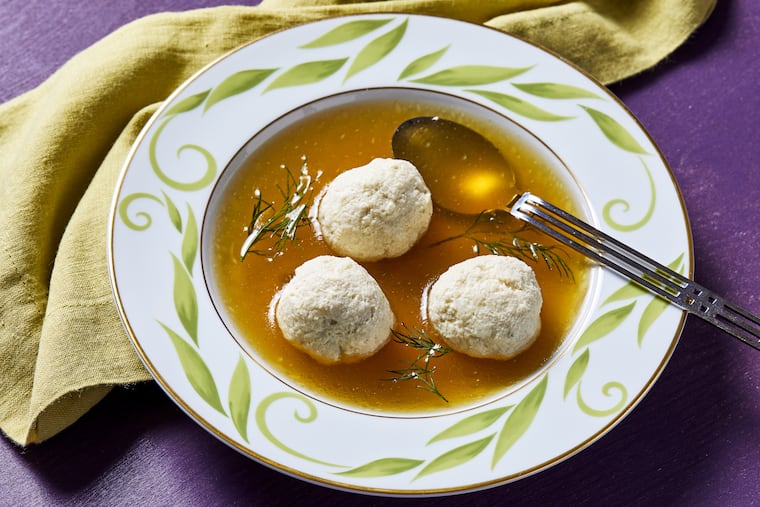How to talk politics with family on Passover | Opinion
While it is not so hard to distance ourselves from political opponents we do not know, it is an entirely different matter when it comes to family who feel like friends, and friends who feel like family.

My mom taught me to roll Passover matzo balls a bit on the imperfect side — not grossly flawed, but just enough to look homemade. To this day, I drop globs, not globes, of batter into the bubbling broth, making sure to leave a fingerprint here and an indent there.
To add a metaphor to a holiday already laden with symbolism, we can view those imperfect spheres as emblematic of our imperfect union.
A union where issues such as climate change and health care cry out in vain for an administration motivated by integrity and reason. A union where the president spurs, rather than spurns, profound discord.
As we usher in Passover this Friday evening, many of us will sit at divided tables, prompting the question: How can we remain friends with people who have opposite views on the current administration?
The New York Times wrote of the dilemma last August: “To a degree that is unique to this period and this president, disputes over politics have divided Americans’ homes, strained marriages, ruined friendships and invaded the workplace.”
This predicament is especially salient at the seder, a gathering that urges us to focus on the very values driving us apart. When the Haggadah proclaims, “Let all who are hungry come and eat,” this administration’s attempt to cut food stamps comes to mind. When the Haggadah reminds us, “You were strangers in the land of Egypt,” images of immigrant families separated at the border flash into view. And on and on, like latter-day plagues.
While the majority of non-Orthodox Jews vote Democrat, a minority do not — so we may end up reading the Haggadah with some whose politics we feel contravene the reason for convening. We stew over reclining on this night alongside guests whose opinions strike us as antithetical to the essence of Judaism.
While it is not so hard to distance ourselves from political opponents we do not know, it is an entirely different matter when it comes to family who feel like friends, and friends who feel like family. On the one hand, engaging with companions on the opposite side can feel like a Red Sea too wide to cross. On the other hand, spending Pesach with our mishpachah is one of the highlights of the year.
Our affection for those with whom we disagree predates this era — but will it survive this era?
We can find some guidance in Jewish ethical teachings that obligate us “to make peace where there is strife.” We are commanded to hunt not just for the afikomen (hidden matzo), but for the wisdom to talk thoughtfully, and the poise to break unleavened bread together.
In all likelihood, we are not going to change anyone’s mind that night. We ask on Passover: Why is this night different from all other nights? It’s not. We still fundamentally disagree.
Nevertheless, this intimate celebration presents an opportunity to politely yet passionately point out how Passover’s ancient message of deliverance from oppression directly informs our duty today. Ideally, we can find the strength to speak out eloquently — or at least to speak up indirectly, by helping to retell this story so that we can heed its lessons.
Whichever course we choose, it is worthwhile to keep lines of communication open. On all other Passovers, we commemorate the Exodus; on this one, we prevent an exodus.
Yet conversation alone is not enough — is not a Dayenu moment — in these troubled times. Seder table talk is but the precursor to what we do afterward.
By committing ourselves anew to social justice, we make real the promise of Passover. Inspired by our Biblical journey from bondage to freedom, we must protest, educate, advocate, demand, and vote our way out of this messy soup we are in.
Jan Zauzmer, a past president of a large URJ congregation in Montgomery County, wishes all who celebrate a meaningful Passover. janzauzmer@gmail.com and @JanZauzmer